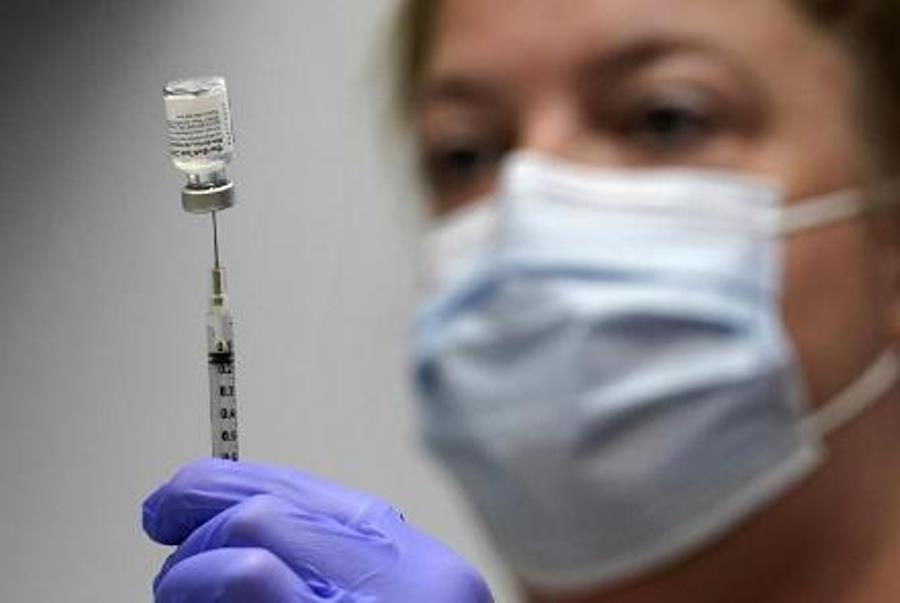The U.S. gave full approval to Pfizer’s COVID-19 vaccine Monday, a milestone that could lift public confidence in the shots and spur more companies, universities and local governments to make vaccinations mandatory.
The Pentagon immediately announced it will press ahead with plans to require members of the military to get the vaccine.
The formula made by Pfizer and its German partner BioNTech now carries the strongest endorsement from the Food and Drug Administration, which has never before had so much evidence to judge a shot’s safety.
More than 200 million Pfizer doses have been administered in the U.S. — and hundreds of millions more worldwide — since December. But up to now, they were dispensed in this country under what is known as emergency use authorization from the FDA.
“The public can be very confident that this vaccine meets the high standards for safety, effectiveness and manufacturing quality the FDA requires of an approved product,” acting FDA Commissioner Janet Woodcock said in announcing full approval, which comes as the U.S. battles the most contagious coronavirus mutant yet, the delta variant.
Pfizer CEO Albert Bourla said in a statement he hopes the decision “will help increase confidence in our vaccine, as vaccination remains the best tool we have to help protect lives.” The shot now will be known in the U.S. by the brand name Comirnaty.
U.S. vaccinations bottomed out in July at an average of about a half-million shots per day, down from a peak of 3.4 million a day in mid-April. As the delta variant fills hospital beds, shots are on the rise again, with a million a day given Thursday, Friday and Saturday.
Just over half of the U.S. population is fully vaccinated with one of the country’s three options, from Pfizer, Moderna or Johnson & Johnson.
Moderna has also applied to the FDA for full approval of its vaccine. J&J said it hopes to do so later this year.
Full approval means Pfizer’s COVID-19 vaccine meets the same “very high standards required of all the approved vaccines we rely on every day,” said Dr. Jesse Goodman of Georgetown University, a former FDA vaccine chief. That should help “anyone who still has concerns gain confidence” in the shots.
Earlier this month, Defense Secretary Lloyd Austin said he would seek the president’s OK to make the vaccine mandatory by mid-September or once the FDA issues final approval, whichever comes first. On Monday, after the FDA acted, Pentagon spokesman John Kirby said a timeline for vaccinations will be provided in the coming days.













